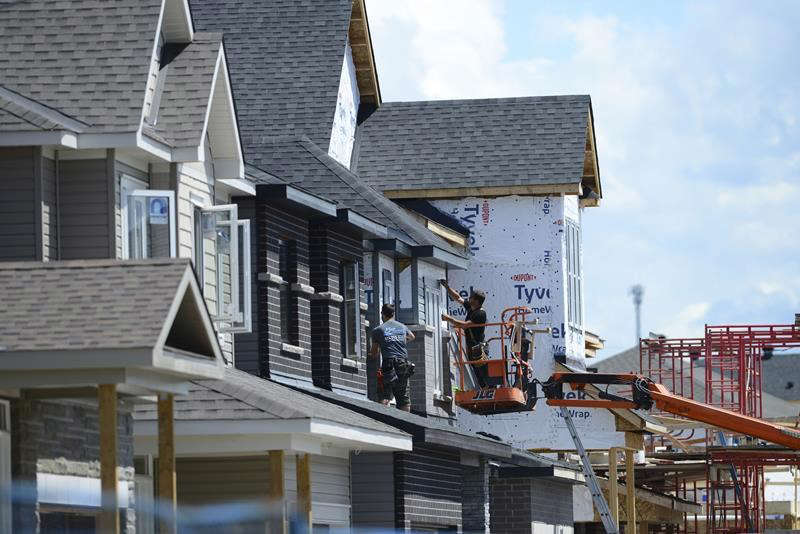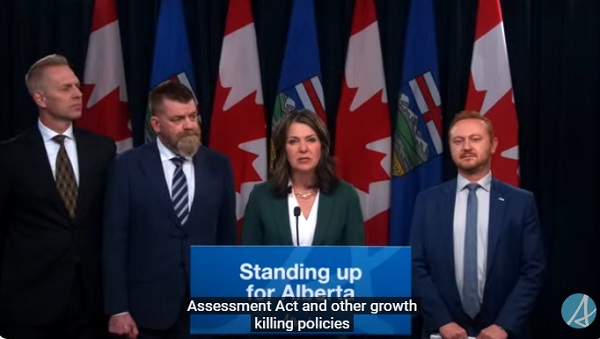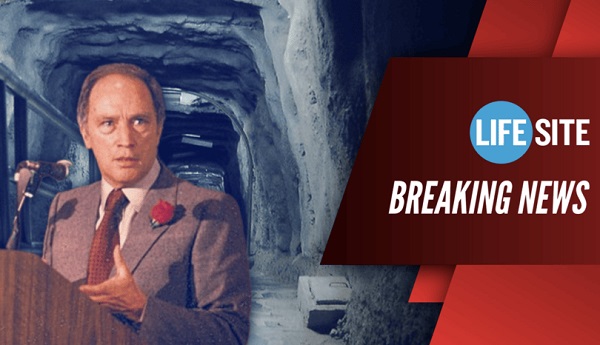Alberta
Addressing affordable homebuilding hurdles

A new Construction Codes Working Group will explore changes to construction codes to help address housing affordability.
As Alberta’s population continues to grow, so does the need for more housing options. That’s why the province has been working to reduce barriers and empower its housing partners to get more shovels in the ground, and get more houses built for Alberta families.
Alberta’s government continues to look at all options to build more homes. To further this work, a Construction Codes Working Group has been created to explore how Alberta’s construction codes can be improved to speed up development while still maintaining the required high quality and safety standards. The working group includes members from government, municipalities and the development community.
“We are leaving no stone unturned in our approach to increase housing options for Albertans. We have already collaborated to streamline some permitting processes, and by continuing to work together we will remove barriers standing in the way of housing options.”
“Albertans need more housing options as the population grows and it’s why we’ve been working to reduce barriers to housing construction. This working group is just another way that our government is working with housing partners and municipalities to accelerate homebuilding across the province.”
Using the expertise and experience of municipal and industry professionals, the Construction Codes Working Group will explore construction code amendments to accelerate the homebuilding process across the province and harness regulatory, municipal and industry expertise to tackle housing development complexities. Examples of code changes the working group may consider include those for secondary suites and single-stair apartments to make housing easier to build.
The Construction Codes Working Group will include representatives from Alberta’s government, the cities of Calgary and Edmonton, the Safety Codes Council, and the Building Industry and Land Development Association (BILD) Alberta. The Safety Codes Council will ensure safety codes officers are trained on any new codes, inspections or approval processes. BILD Alberta will give insight into market conditions and development challenges.
“In the face of unprecedented population growth, we need an ‘all hands-on deck’ approach to build more homes and meet the growing demand. The Construction Codes Working Group unites experts to streamline construction processes while maintaining top safety standards. I look forward to the insights and recommendations from this working group and am confident a collaborative approach will help deliver more housing options for Calgarians.”
“The City of Edmonton is proud to be a member of the new Construction Codes Working Group. As Edmonton continues to experience unprecedented growth and an increased demand for housing, we are eager to explore new and innovative ways to streamline the development process to ensure every Edmontonian has a home.”
On May 1, Alberta formally updated its provincial building and fire codes to align with national codes and allow for improved energy efficiency in housing and small buildings, while still emphasizing consumer affordability. The Construction Codes Working Group will build on this work to address additional pressures and development challenges found in Alberta’s housing market.
“As a member of the Construction Codes Working Group, BILD Alberta is proud to support the development of solutions that balance building code requirements with housing affordability. By collaborating with key stakeholders, we aim to identify innovative, practical changes that prioritize safety, efficiency and accessibility while addressing the pressing housing needs of Albertans.”
Quick facts
- The 2023 Alberta editions of the building and fire codes and the 2020 National Energy Code for Buildings came into force on May 1, 2024.
- The creation of the Construction Codes Working Group supports the goals of Alberta’s Housing Action Plan by looking at ways to cut red tape that are creating delays in affordable construction.
- The 2024 Accessibility Design Guide that was recently released includes detailed information and context to help the public and construction industry understand and apply the provincial building code’s accessibility requirements.
Related information
Alberta
Alberta taking Trudeau government to court to fight unconstitutional Impact Assessment Act

Alberta’s government is again taking the federal government to court over its unconstitutional Impact Assessment Act after they failed to meet the province’s four-week deadline.
Impact Assessment Act lands Ottawa in court again |
In October 2023, the Supreme Court of Canada concluded that the Impact Assessment Act was largely unconstitutional. On June 20, 2024, the federal government amended the Impact Assessment Act as part of a large omnibus budget bill. The amendments fail to correct the constitutional deficiencies the Supreme Court of Canada identified with the original legislation and will continue killing jobs and hurting the economy.
Alberta’s government gave the federal government a four-week deadline to remedy the unconstitutional provisions in the amended Impact Assessment Act or face another legal challenge. The federal government has failed to address Alberta’s concerns, showing a continued disregard and refusal to engage with Alberta on the legislation and its flawed amendments. In response, Alberta has referred the constitutionality of the amended Impact Assessment Act to the Court of Appeal of Alberta.
“We have tried working with Ottawa to change their deeply flawed and unconstitutional Impact Assessment Act but we’ve been met with resistance every step of the way. They have chosen to disregard our input, disregard a Supreme Court of Canada decision, and disregard our deadline, so we’ll see them in court. Again. We will not stand down on this issue.”
The federal government’s Impact Assessment Act enables Ottawa to derail, delay and interfere in projects that have little or nothing to do with matters falling within federal jurisdiction. Alberta’s government has been consistent in its response and continues to wait for the federal government to engage meaningfully and make meaningful amendments to the legislation.
Alberta’s government asked the federal government to:
- Eliminate federal encroachment into provincial jurisdiction.
- Recognize equivalency and the ability to fully substitute our provincial environmental assessment for a federal impact assessment.
- Create certainty for industry and increase investor confidence by imposing concrete timelines and curbing ministerial discretion.
- Emphasize that significant adverse effects within federal jurisdiction is the minimum threshold for federal involvement.
- Streamline the process by scoping projects appropriately and placing some parameters on public involvement.
- Focus the public interest decision-making process on significant adverse effects within federal jurisdiction and countervailing positive effects.
“The federal government needs to respect the decisions of the Supreme Court and stop making meaningless attempts to bypass the rulings of Canada’s highest court. The courts agreed with Alberta in the first legal challenge, and we are prepared to fight as many times as is necessary to defend the rights of Albertans against this blatant overreach.”
Alberta
A Trump Effort To Revive Keystone XL Would Likely Be Purely Symbolic

 From the Daily Caller News Foundation
From the Daily Caller News Foundation
Of all the destructive actions President Joe Biden took related to energy policy during his four years in office, his stroke-of-a-pen decision on his first day in office to cancel the cross-border permit for the Keystone XL pipeline system as a political payoff to his environmentalist campaign funders was perhaps the worst.
It was bad enough that Biden took that action to cancel the $8 billion project absent any finding that operator Trans-Canada (now TC Energy) was in violation of any law or regulation of the United States. It was even worse that he took that action despite the fact that Trans-Canada had already spent over $3 billion building much of the project with hundreds of miles of pipe already in the ground by January 2021.
Worse still are the realities that, along with cancelling the project, Biden canceled as many as 10,000 high-paying American jobs during the construction of the project, left America more dependent on oil imports from hostile nations like Venezuela and Iran due to lost imports from Canada and even cost the province of Alberta an estimated $1.3 billion it stood to gain from the project’s completion.
But the most damaging impact of all emanating from Biden’s craven act of crony politics was the loss of trust in the consistent, fair application of American law and regulations it caused. The cancellation of Keystone XL made it vastly harder for big companies to secure financing for big projects that take years to permit and develop because funders could no longer assume U.S. laws would be applied based on merit rather than political fiat. That advantage over other parts of the world that the United States has always enjoyed was severely damaged.
Last week, we saw a flurry of stories by major media outlets that the Trump transition team is working on plans to reverse Biden’s ill-considered order and trying to revive the Keystone XL project. While that is certainly a laudable goal, developments that have taken place since 2021 will likely limit it to a purely symbolic act.
First, TC Energy no longer even owns the rights to the project or its remaining assets. Those assets, along with the rest of the previously existing Keystone Pipeline system, were spun off into a new entity named South Bow Energy in June of this year. A spokesperson for that company was reluctant to comment when asked about possible revival of Keystone XL, saying, “As a new company, our focus and priority at this point is to continue to deliver energy safely and efficiently. Part of South Bow’s long-term strategy is to grow our business.”
Second, a few months after Biden’s destructive action, TC Energy announced it had cancelled the project and would not be seeking to carry on the fight. As a result of the cancellation, TC Energy then removed the hundreds of miles of pipe that had already been installed into the ground so that it could be repurposed for use in other projects.
Third, the rights-of-way for the Keystone XL project are no longer in effect. Nor are the permits for the project. Thus, any effort to revive it by South Bow would necessitate a repetition of the painstaking, years-long process of reacquiring all those miles of rights-of-way and local, state and federal permits.
This brings us back to the most damaging aspect of Biden’s political payback: Any such effort would without doubt extend into the next presidential term to begin in 2029. Who is going to be willing to commit billions of now-inflated dollars (thanks largely to Biden and his team’s policies) to a pipeline project that might well end up being cancelled should voters decide to elect another Democrat to the presidency in 2028?
So, while the desire by the Trump team to restart Keystone XL is commendable, the facts on the ground almost certainly mean it would be a purely symbolic gesture.
This current presidency cannot end soon enough.
David Blackmon is an energy writer and consultant based in Texas. He spent 40 years in the oil and gas business, where he specialized in public policy and communications.
-

 Alberta2 days ago
Alberta2 days agoThe Alberta energy transition you haven’t heard about
-

 espionage2 days ago
espionage2 days agoShock interview reveals big names connected to international paedophile network
-

 Business2 days ago
Business2 days agoTrump Announces Border Deal With Mexico, Sheinbaum Agrees To Close Border
-

 Brownstone Institute1 day ago
Brownstone Institute1 day agoJustice Is Served: Jay Bhattacharya Chosen to Be NIH Director
-

 Business1 day ago
Business1 day agoGreen Energy or Green Grift? SDTC at the Center of a $38 Million Scandal
-

 Crime1 day ago
Crime1 day agoThe Bureau Exclusive: The US Government Fentanyl Case Against China, Canada, Mexico
-

 Bruce Dowbiggin1 day ago
Bruce Dowbiggin1 day agoClimate & Covid: How The Certainty of Elites Destroyed A Decade
-

 Crime1 day ago
Crime1 day agoTrafficking victim advocate analyzes testimony of reported survivor of elite abuse network







